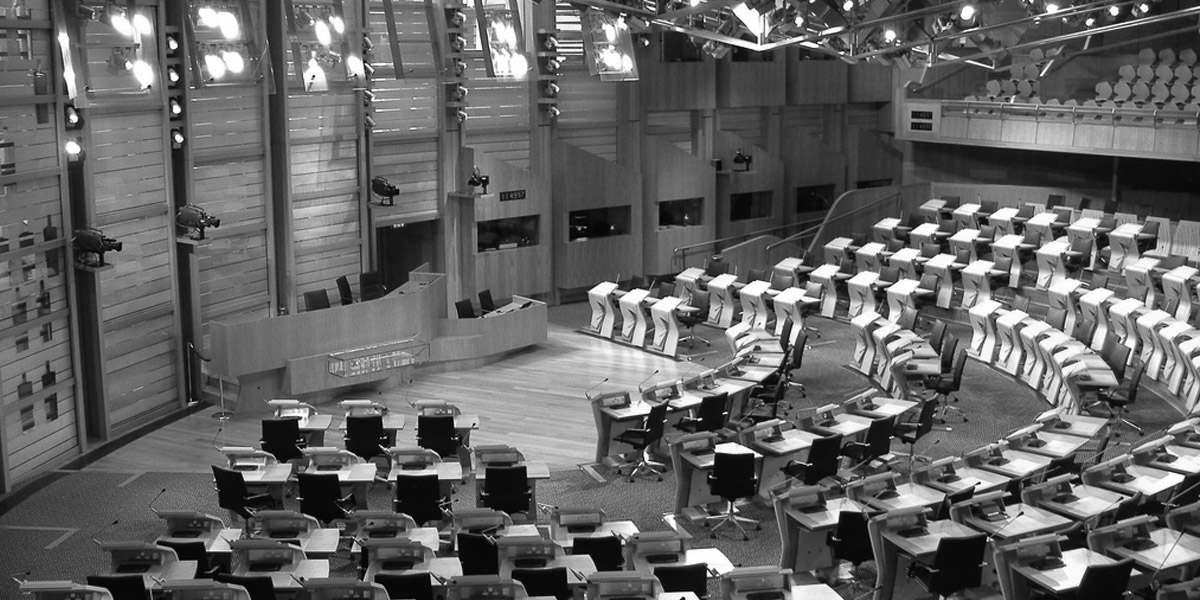Devolution: The ties that bind us
As a Scot in London I have been surprised by the high level of interest from those south of the border in the upcoming independence referendum. Across the UK people are genuinely interested in the arguments and the outcome, but...
As a Scot in London I have been surprised by the high level of interest from those south of the border in the upcoming independence referendum. Across the UK people are genuinely interested in the arguments and the outcome, but all too often are unaware of the powers that the devolved administrations in Scotland, Wales and Northern Ireland currently hold.
Today the Scottish Labour party published its plans for the further devolution of powers to Holyrood in the event that Scotland votes ‘no’ in September. With 2012’s Scotland Act already set to give Holyrood powers over income tax rates and borrowing levels from 2016, devolution is certainly a process not an event.
Earlier this month the Silk commission reported on devolution in Wales, calling for the Welsh assembly to have greater powers over policing, energy, broadcasting and transport. The commission also called for Wales to move to a reserved powers model, which would stipulate which powers are not devolved rather than those that are, bringing the assembly into line with the Scottish parliament and the Northern Irish assembly.
This move would represent a step change if implemented: to date asymmetry has been a key feature of devolution across the United Kingdom. The institutions that Labour created through its constitutional reforms in 1998 reflected the historic differences between the nations of the UK, as much as existent political pressures.
Scotland, which has a long history of independent statehood before the union of 1707, had been accommodated within Great Britain with its own church and legal and education systems, and from 1885 its own government department – the Scottish office. In 1999 Scotland was given a parliament, while Wales (which was given a Welsh office in 1965 and remained culturally distinct despite being annexed to England in the mid-sixteenth century) was given an assembly.
The difference in language was not only symbolic but substantive; Scotland was given far greater powers, including the ability to pass primary legislation on any issue not specifically reserved to Westminster.
Acknowledging this asymmetry, Labour’s last prime minister Gordon Brown called for a narrative of Britishness. Brown’s claims that British solidarity was underwritten by distinct British values were criticised for being politically expedient given his personal predicament as a Scottish PM. But the issues he raised were – and are – real and salient. Asymmetric devolution has the capacity to undermine what unites the UK, as the SNP’s current policies and constitutional proposals highlight.
The sociologist TH Marshall said that individuals are bound together in solidarity and social citizenship through a sequence of civil, political and social rights. Applying his logic, the creation of new political rights in Scotland, with a parliament responsible for major aspects of social policy could create a competing site for social solidarity at odds with the UK. In practice, distinctive policies such as the abolition of undergraduate tuition fees have earmarked Scotland’s political space; the same is true for Wales and Northern Ireland.
Devolving different powers to different national legislatures across the UK has not been matched by renewed commitment to strengthen state-wide social citizenship and inter-governmental institutions. German regions, in contrast, are strongly represented across their federal government.
Labour is partly to blame for this: as the senior partner in the Scottish executive and with a majority in the UK parliament, Labour coordinated policy through informal networks during the early years of devolution rather than by building official channels for inter-governmental communication. This legacy has been exacerbated as different parties have come to power in different parts of the UK.
The creation of different social rights in different parts of the UK – whether in relation to higher education, prescriptions or social care – has also disconnected our political debate. Citizens across the UK have different rights and are subject to different authorities.
The devolved nations undoubtedly benefit from being part of the UK – with powers over important domestic policies, they also benefit from the strength, security and influence that being part of a bigger country brings – but the public need to know who does what and why.
The devolution of further powers to our national legislatures should be supported, but we need to renew our commitment to social citizenship and social justice across the whole of the UK. Re-engagement with this issue is important, but we must engage at all times – not only when our unity is under threat.
